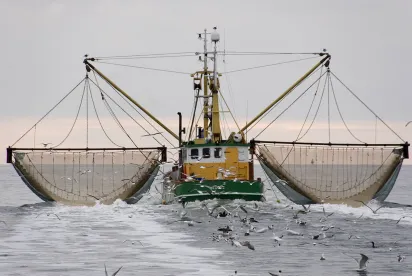This week, in North Carolina Coastal Fisheries Reform Group, et al., v. Capt. Gaston LLC, a three judge panel of the Fourth Circuit Court of Appeals agreed with a District Court Judge that when shrimpers use nets to catch shrimp, returning bycatch caught in those nets to the ocean, they're not violating the Federal Clean Water Act.
The North Carolina Coastal Fisheries Reform Group, concerned about negative impacts of shrimping, had sued shrimpers under the Clean Water Act on the imaginative bases that the shrimpers' nets were dredging the ocean bottom without a necessary permit from the Corps of Engineers and that the return of bycatch caught in their nets to the ocean was a discharge of a pollutant without a necessary permit from EPA.
The Fourth Circuit panel notes that EPA does not, and never has, read the Clean Water Act in the way the North Carolina Coastal Fisheries Reform Group does. The court also recognizes that there are other Federal laws that specifically address the impacts of fishing and allocate the responsibility for regulating those impacts between the National Marine Fisheries Service and Regional Fishery Management Councils in Federal waters and the States in State waters.
So, was it really necessary for the Judges to empty their constitutional law toolbox in rejecting the NGO's imaginative claims, including invoking the major questions doctrine and citing Sackett regarding the Clean Water Act's allocation of responsibilities between the Federal and State Governments (which isn't applicable if the Clean Water Act doesn't apply)? It seems to me that the Court could have just affirmed the District Court's judgment.
Despite that, the opinion is a good summer read, including an interesting exposition on whether the major questions doctrine is really just a restatement of the clear statement rule and an assertion that a Ninth Circuit panel had misapplied the doctrine of ejusdem generis (I had to look it up too) in another case considering what is and isn't a pollutant under the Clean Water Act.
I also think this case is a good illustration of why we should leave the definition and implementation of the Clean Water Act to the legislators and the regulators and, if we're not happy with the job they're doing in that regard, elect different leaders, not turn to the courts.
“[Petitioners] seeks to vastly expand the EPA’s regulatory authority in a way that would upset the federal-state balance by intruding on states’ authority to manage fisheries in their own waters and essentially moot the established scheme to regulate bycatch in federal waters. This sea-change would have an enormous impact on the recreational and commercial fishing industries; industries which Congress has specifically sought to protect. ‘Given these circumstances,’ ‘this is a major questions case,’” Judge Julius Richardson wrote for the unanimous panel.
https://insideepa.com/weekly-focus/use-major-questions-grows-court-extends-doctrine-citizen-suits




 />i
/>i


